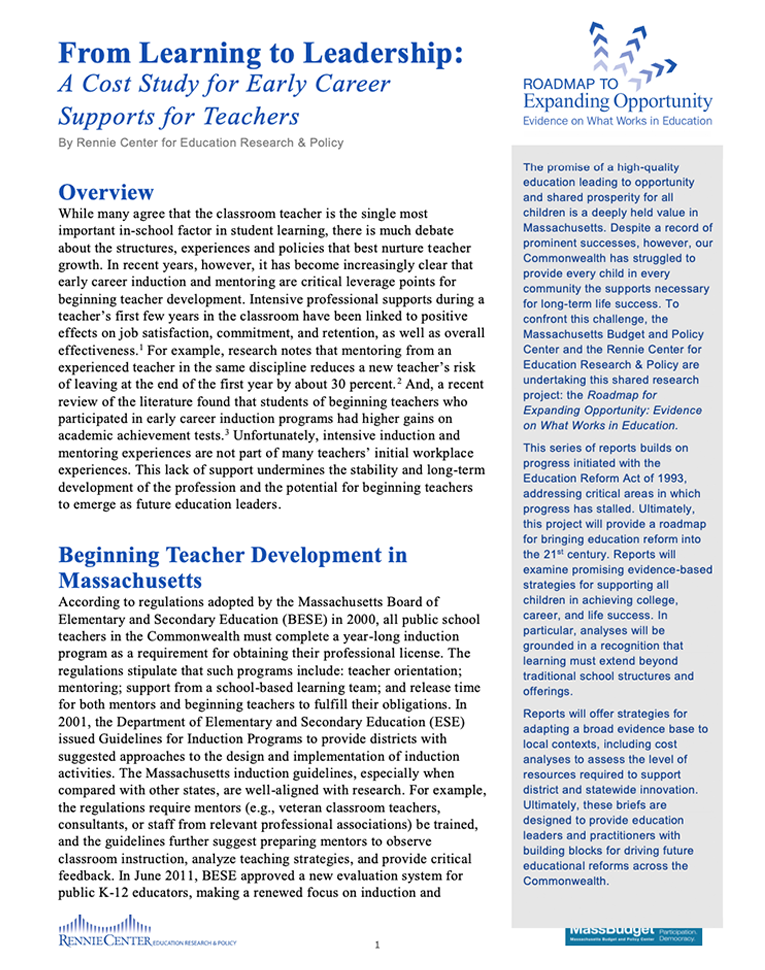From Learning to Leadership: A Cost Study of Early Career Supports for Teachers
October 02, 2014
THE RENNIE CENTER FOR EDUCATION RESEARCH & POLICY AND MASSBUDGET
While many agree that the classroom teacher is the single most important in-school factor in student learning, there is much debate about the structures, experiences and policies that best nurture teacher growth. In recent years, however, it has become increasingly clear that early career induction and mentoring are critical leverage points for beginning teacher development. Intensive professional supports during a teacher’s first few years in the classroom have been linked to positive effects on job satisfaction, commitment, and retention, as well as overall effectiveness.
For example, research notes that mentoring from an experienced teacher in the same discipline reduces a new teacher’s risk of leaving at the end of the first year by about 30 percent. And, a recent review of the literature found that students of beginning teachers who participated in early career induction programs had higher gains on academic achievement tests. Unfortunately, intensive induction and mentoring experiences are not part of many teachers’ initial workplace experiences. This lack of support undermines the stability and long-term development of the profession and the potential for beginning teachers to emerge as future education leaders.
It has become increasingly clear that early career induction and mentoring are critical leverage points for beginning teacher development.

